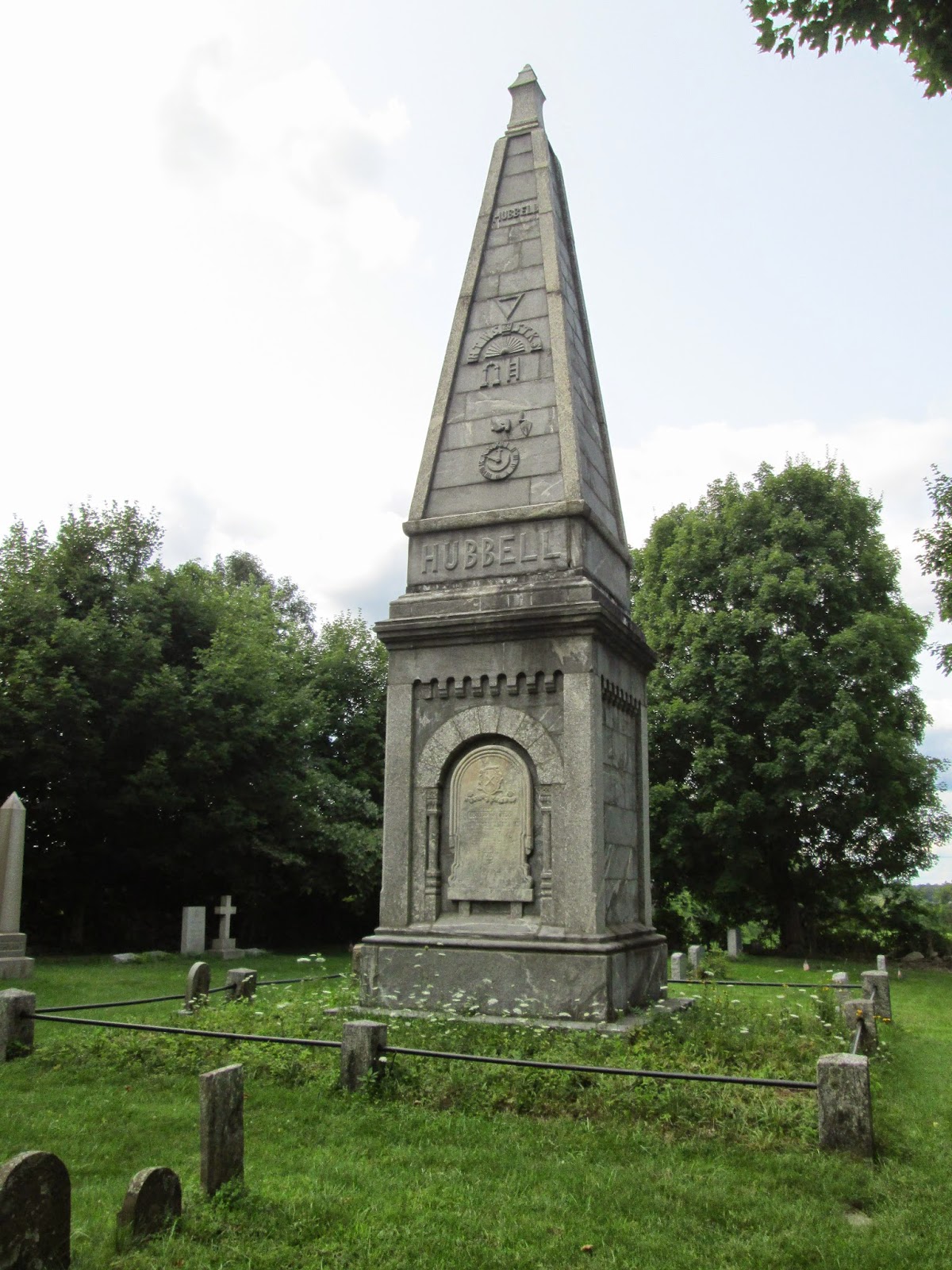There are many beautiful places in the world. I've stood in San Marcos in Venice, Saint Peter's in Rome, Saint Patrick's and Trinity in New York, Westminster Abbey, Salisbury Cathedral, and heard Easter service in London's Saint Paul's. If you asked me, however, where I've felt the sublime, it would be as the evening sunlight is falling over the farms of White Hills. This little baptist church is tucked away there on a small side road. It hasn't been in use for a hundred years. The burial ground is still active, however, and an association of families keeps the church in good repair and allows it to be used for weddings and other special occasions. It's rather unremarkable, and one of the most beautiful things I've seen.
I suppose a Baptist church didn't stand much chance in a town like Shelton. The first Sheltons were staunch members of the Church of England and Patriarch of the Family, Lieutenant Daniel Shelton, was a loyalist during the War of Independence. Of course, being New England, many of the town's inhabitants (it was called Ripton back then) disagreed with the Sheltons on both counts and threw their lot in with Congregationalism and the Republic. Over time, Catholic immigration added Saint Joseph's to the list of churches. The small Baptist community made a valiant effort to insert themselves into the charged ecclesiastical atmosphere and held out for less than a hundred years. The building is beautiful, however, and a brief look at the cemetery discloses that there was some real power and money behind it.
This is the Hubbell monument that forms the rough center of the cemetery. Numerous signs proclaim that the head of the clan was a prominent Mason. Under an inverted triangle, we find and arch with the legend HTWSSTKS (Hiram the Widow's Son Sent to King Solomon). Beneath that, we find Jacob's Ladder and another arch(for the Temple?) under a rising sun(the Divine). Below these are the mason's tools, the trowel and the spade and a clock with a crescent moon reminding us that we are all headed toward death (it would signify membership in the Elks if it was stopped at 11:00). I knew a Hubbell many years ago and I wonder if he was a relation. One way or another, this is a monument that was made to last, the fact that it sits in an out-of-the way corner of town by a church that hasn't been in use for a hundred years is a sad irony. Yet I'm glad for the church and for the stone. Whatever Mr. Hubbell and his fellow Baptists intended, they have left a legacy; a legacy of beauty.
I suppose a Baptist church didn't stand much chance in a town like Shelton. The first Sheltons were staunch members of the Church of England and Patriarch of the Family, Lieutenant Daniel Shelton, was a loyalist during the War of Independence. Of course, being New England, many of the town's inhabitants (it was called Ripton back then) disagreed with the Sheltons on both counts and threw their lot in with Congregationalism and the Republic. Over time, Catholic immigration added Saint Joseph's to the list of churches. The small Baptist community made a valiant effort to insert themselves into the charged ecclesiastical atmosphere and held out for less than a hundred years. The building is beautiful, however, and a brief look at the cemetery discloses that there was some real power and money behind it.
This is the Hubbell monument that forms the rough center of the cemetery. Numerous signs proclaim that the head of the clan was a prominent Mason. Under an inverted triangle, we find and arch with the legend HTWSSTKS (Hiram the Widow's Son Sent to King Solomon). Beneath that, we find Jacob's Ladder and another arch(for the Temple?) under a rising sun(the Divine). Below these are the mason's tools, the trowel and the spade and a clock with a crescent moon reminding us that we are all headed toward death (it would signify membership in the Elks if it was stopped at 11:00). I knew a Hubbell many years ago and I wonder if he was a relation. One way or another, this is a monument that was made to last, the fact that it sits in an out-of-the way corner of town by a church that hasn't been in use for a hundred years is a sad irony. Yet I'm glad for the church and for the stone. Whatever Mr. Hubbell and his fellow Baptists intended, they have left a legacy; a legacy of beauty.


Comments